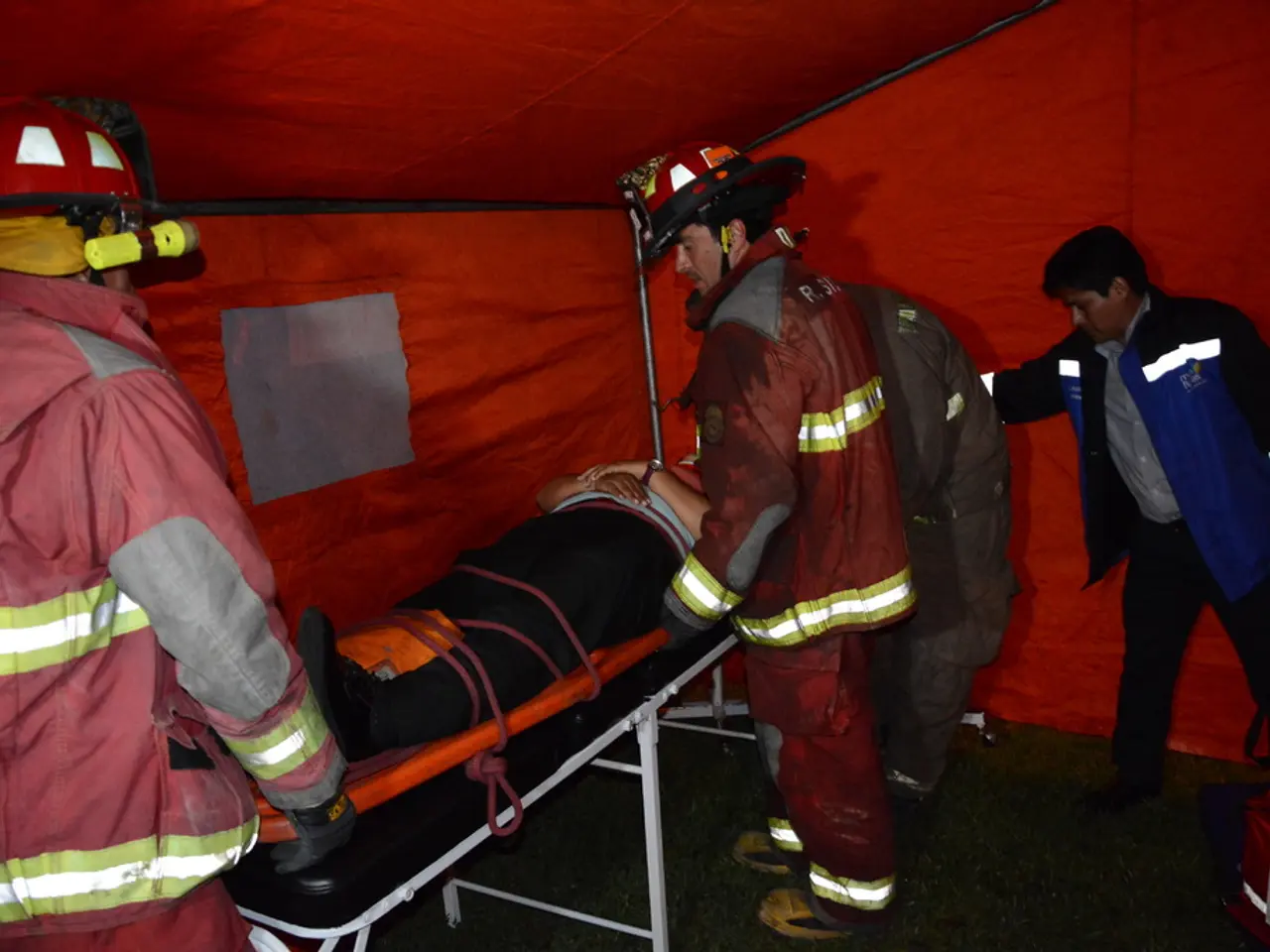Wilderness First Aid Guide: Initial Overview
Stay Prepared: Essential First Aid for Outdoor Adventures
Venturing into the great outdoors for activities like camping, hiking, kayaking, or bushcraft can be an exhilarating experience. However, it's essential to be prepared for emergencies that may arise during your journey.
First aid knowledge can be the difference between life and death in an emergency situation. Basic first aid skills for the wilderness include assessing the situation, determining the best course of action, and stabilizing the patient until professional help arrives.
In the wilderness, consider the S.T.O.P protocol: Stay Calm, Think, Observe, and Plan. This simple yet effective method can help keep you focused and make informed decisions in an emergency.
When it comes to supplies, a well-stocked first aid kit is crucial. Some common wilderness injuries and illnesses include blisters, sprains and strains, fractures, head injuries, hypothermia and frostbite, heat stroke and dehydration, insect stings and bites, injury from tools like knives and axes, and burns.
A basic first aid kit for the outdoors should include:
- Sterile gauze dressings
- Sterile eye dressings
- Triangular and crepe-rolled bandages
- Disposable gloves
- Antiseptic wipes or solution
- Safety pins
- Tweezers
- Scissors
- Pain killers
- Insect bite spray or cream
- Antihistamine cream and or tablets
- Distilled water for cleaning wounds
- Eyewash
- A whistle
- A selection of other supplies
For insect sting relief, consider carrying sting pads to alleviate bee, wasp, ant, or spider stings. Over-the-counter pain relievers and antihistamines can also be helpful for allergic reactions or insect bites.
In addition to basic wound care, it's important to be prepared for survival situations. Consider packing items like a whistle, flashlight or headlamp, compass or GPS, fire starter, emergency blanket, and a knife. Waterproof first aid kit or dry bags can help keep supplies dry, and extra snacks and water, especially for hiking or multisport trips, are always a good idea.
When planning your move in an emergency, take into account distance, daylight left, and weather conditions. If the patient's condition is serious or life-threatening, call for help immediately using a whistle, mobile phone, or satellite phone. To get hold of Mountain Rescue, dial 999 or 112 and ask for Police, then Mountain Rescue. Be ready with your location, nature of emergency, number of people in the party, and your mobile number when calling.
Remember, knowing basic first aid in the wilderness can save lives. Take a first aid training course specifically designed for outdoor activities to ensure you're well-equipped to handle emergencies. Specialist courses for the outdoors are available, and many local colleges offer first aid courses throughout the UK.
Stay safe and enjoy your outdoor adventures!
[1] Adventure Medical Kits: www.adventuremedicalkits.com
[2] Outdoor First Aid: www.outdoorfirstaid.co.uk
[3] Mountain Rescue: www.mountain-rescue.org.uk
[4] Ordnance Survey: www.os.uk
[5] British Red Cross: www.redcross.org.uk
- Despite the thrill of outdoor activities like kayaking, camping, hiking, or bushcraft, emergencies can occur.
- Gear guides recommend that a well-stocked first aid kit, featuring items like sterile gauze, antiseptic wipes, and pain killers, is essential in the wilderness.
- Beyond first aid, survival items such as a whistle, flashlight, compass, and emergency blanket are crucial for outdoor emergencies.
- Health-and-wellness enthusiasts can benefit from Backpacking trips as they provide opportunities for nature exploration, fitness-and-exercise, and learning bushcraft skills.
- For those venturing into the wilderness, it's essential to be aware of potential injuries like insect stings, fractures, and hypothermia, and to have the necessary knowledge and gear to deal with them.
- To stay informed and equipped for outdoor emergencies, consider taking specific first aid courses or consulting resources like Adventure Medical Kits, Outdoor First Aid, Mountain Rescue, Ordnance Survey, and the British Red Cross.




